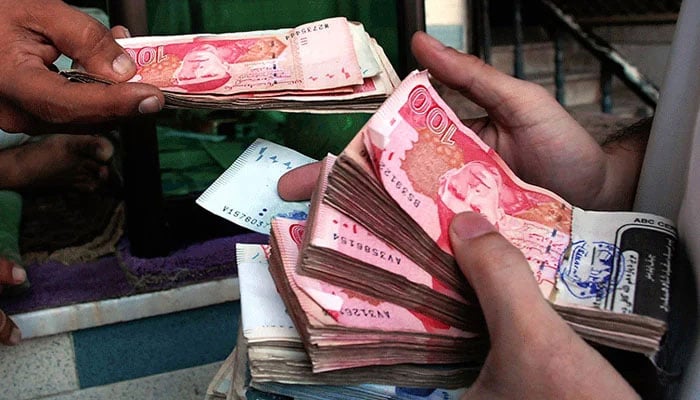Economic agenda
LAHORE: Pakistan’s main problem is the economy, which requires the full concentration of the government, but other issues frequently crop up that distract the rulers’ attention from this burning issue.
As soon as the IMF staff successfully concluded the review of Pakistan’s ongoing program, we faced a wave of terrorist attacks in KPK, which muted the celebration of the success.
The global powers are also pulling Pakistan in different directions. Pakistan has made its intention known for requesting the US government to give it a waiver on the Iran-Pakistan gas pipeline. But before Pakistan formally placed its request with US authorities, a US official had categorically stated that any move to go ahead with the pipeline project would invite US sanctions.
Pakistan is making efforts to accelerate the CPEC’s second phase, but the United States is opposing it. Still, Pakistan was going ahead. Now, 5 Chinese have been killed in a terrorist attack in KPK.
The Chinese have suspended work on all projects. Pakistani authorities are trying to assure the Chinese that such incidents will not happen in the future, but the Chinese, having received assurances earlier as well, are not convinced. Heads must roll if a security lapse is identified after a probe by the Chinese.
While all this was going on, the six judges of the Islamabad High Court created doubts about the judicial system in Pakistan, and it caught the full attention of the Prime Minister, who is also very much involved in economic planning.
Pakistan’s economy does not need distractions that are aplenty these days. Under the current scenario, the state must assign responsibilities for economic affairs to a single person who is spared from the frequent disruptions on other fronts and can dedicatedly pursue the economic agenda. The economic agenda is very heavy.
There is an issue of obtaining a fresh IMF program within a short time. There is another issue of making up with the Chinese and bringing back their workforce.
The economic planners would have to chalk out a viable policy to increase the tax base and to ensure that the traders are finally fully documented.
The economic planners must be very clear in their approach to resolving these issues. If taxes on the rich are to be increased, they should spell it out clearly. The tax evaders must be confronted directly instead of slapping taxes on indirectly.
Let those affected vent out their anger in public. The government should counter them by exposing the way that each evader adopts to avoid taxes.
They should identify the main protestors and scrutinize their lifestyle, like where they live, how many vehicles they own, where their children study, how frequently they travel abroad with or without family, and how much income tax they pay.
The details of three persons should be released to electronic and print media on a daily basis to build public opinion against tax evaders.
The economic planner must not give this task to the bureaucracy, who are usually partners in crime. They may reduce the impact by showcasing persons who are not tax evaders, and they may prove it. In that case, the whole exercise would be ruined.
-
 Andrew, Sarah Ferguson Refuse King Charles Request: 'Raising Eyebrows Inside Palace'
Andrew, Sarah Ferguson Refuse King Charles Request: 'Raising Eyebrows Inside Palace' -
 Adam Sandler Reveals How Tom Cruise Introduced Him To Paul Thomas Anderson
Adam Sandler Reveals How Tom Cruise Introduced Him To Paul Thomas Anderson -
 Washington Post CEO William Lewis Resigns After Sweeping Layoffs
Washington Post CEO William Lewis Resigns After Sweeping Layoffs -
 North Korea To Hold 9th Workers’ Party Congress In Late February
North Korea To Hold 9th Workers’ Party Congress In Late February -
 All You Need To Know Guide To Rosacea
All You Need To Know Guide To Rosacea -
 Princess Diana's Brother 'handed Over' Althorp House To Marion And Her Family
Princess Diana's Brother 'handed Over' Althorp House To Marion And Her Family -
 Trump Mobile T1 Phone Resurfaces With New Specs, Higher Price
Trump Mobile T1 Phone Resurfaces With New Specs, Higher Price -
 Factory Explosion In North China Leaves Eight Dead
Factory Explosion In North China Leaves Eight Dead -
 Blac Chyna Opens Up About Her Kids: ‘Disturb Their Inner Child'
Blac Chyna Opens Up About Her Kids: ‘Disturb Their Inner Child' -
 Winter Olympics 2026: Milan Protestors Rally Against The Games As Environmentally, Economically ‘unsustainable’
Winter Olympics 2026: Milan Protestors Rally Against The Games As Environmentally, Economically ‘unsustainable’ -
 How Long Is The Super Bowl? Average Game Time And Halftime Show Explained
How Long Is The Super Bowl? Average Game Time And Halftime Show Explained -
 Natasha Bure Makes Stunning Confession About Her Marriage To Bradley Steven Perry
Natasha Bure Makes Stunning Confession About Her Marriage To Bradley Steven Perry -
 ChatGPT Caricature Prompts Are Going Viral. Here’s List You Must Try
ChatGPT Caricature Prompts Are Going Viral. Here’s List You Must Try -
 James Pearce Jr. Arrested In Florida After Alleged Domestic Dispute, Falcons Respond
James Pearce Jr. Arrested In Florida After Alleged Domestic Dispute, Falcons Respond -
 Cavaliers Vs Kings: James Harden Shines Late In Cleveland Debut Win
Cavaliers Vs Kings: James Harden Shines Late In Cleveland Debut Win -
 2026 Winter Olympics Snowboarding: Su Yiming Wins Bronze And Completes Medal Set
2026 Winter Olympics Snowboarding: Su Yiming Wins Bronze And Completes Medal Set




